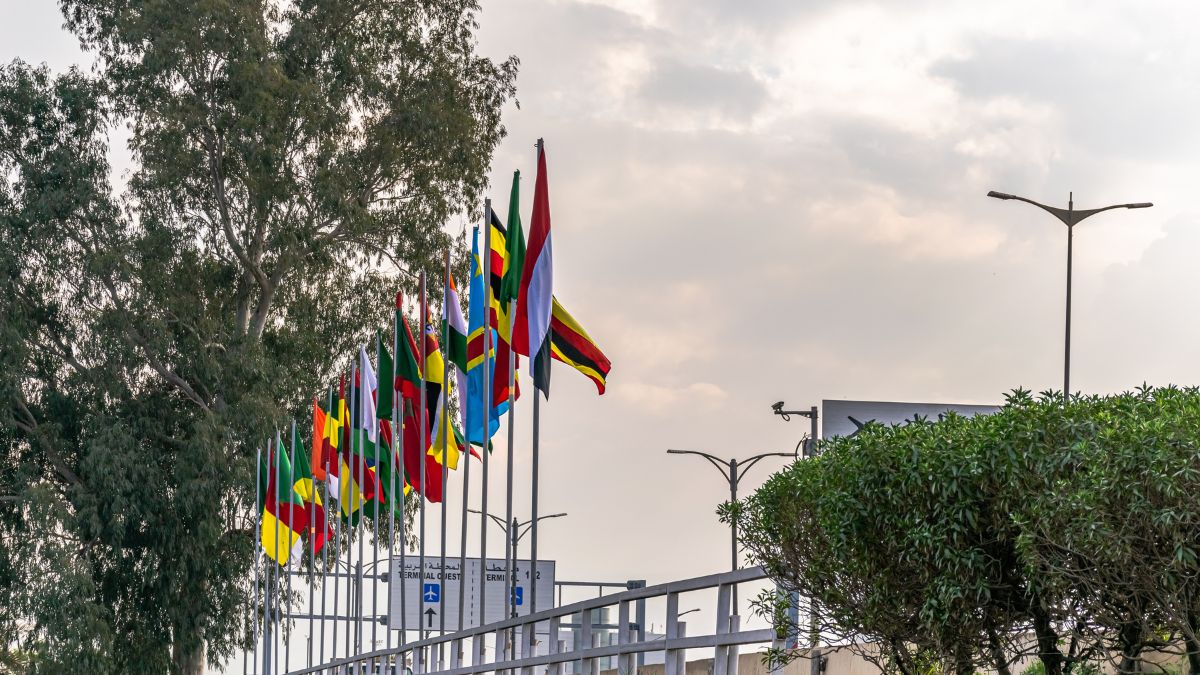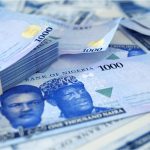Africa is experiencing an economic transformation. Across the continent, economies are expanding, driven by innovation, resource wealth, and a growing, young population. This surge of economic activity places Africa as a major player in the global market. According to the International Monetary Fund (IMF), the continent’s GDP is projected to reach $6.8 trillion by 2024. Africa’s real GDP is expected to grow faster than the global average. Forecasts predict a rise of 3.8% in 2024 and 4.2% in 2025, compared to global projections of 2.9% and 3.2%, respectively. Based on the projected gross domestic product (GDP) in 2024, these are the 10 African countries with the strongest economies.
1. Nigeria ($473.3 Billion)
Nigeria remains the continent’s economic powerhouse, with a projected GDP of $473.3 billion. Despite its impressive overall size, Nigeria’s GDP per capita sits at $2,782 (adjusted to $11,542 using purchasing power parity). The nation’s wealth is largely driven by its oil and gas reserves, but agriculture and telecommunications are also significant sectors. The IMF forecasts a growth rate of 3.4% in 2024, driven by a rebound in oil prices and government efforts to stimulate non-oil sectors.
2. South Africa ($413.4 Billion)
With a GDP of $413.4 billion, it holds the second-largest economy in Africa. South Africa boasts a considerably higher GDP per capita of $11,721 (PPP: $38,423) compared to Nigeria. The country’s economic strength comes from its rich mineral resources, particularly gold and diamonds, along with a well-developed manufacturing and financial services sector. The Johannesburg Stock Exchange is the largest in Africa. South Africa also has the most billionaires of any African nation. The World Bank estimates a growth rate of 1.7% in 2024, with a focus on attracting foreign investment and infrastructure development.
3. Egypt ($409.1 Billion)
Egypt is the third-largest economy in Africa. The country is a major tourist destination and a center for trade and commerce. Egypt is also a major producer of oil and gas. Egyptians enjoy a GDP per capita of $3,847 (PPP: $12,319). Tourism, trade, and commerce are the cornerstones of the Egyptian economy. However, agriculture also plays a vital role. Their main agricultural commodities include rice, wheat, maize, cotton, sugarcane, and horticultural crops such as vegetables, fruit, and dates. However, the African Development Bank (AfDB) predicts a growth rate of 5.2% in 2024, driven by tourism recovery and investments in infrastructure projects.
4. Algeria ($208.3 Billion)
Algeria’s economic power lies in its vast oil and gas reserves, reflected in a GDP per capita of $4,521 (PPP: $14,872). Algeria is a major exporter of natural gas, supplying Europe through the Transmed Pipeline. The country holds the 10th largest natural gas reserves globally. However, having a well-developed industrial sector further strengthens the Algerian economy. The nation aspires to diversify its revenue streams beyond hydrocarbon dependence and implement political reforms for continued progress.
5. Morocco ($134.1 Billion)
Morocco is the fifth-largest economy in Africa. It is a major exporter of phosphates (a key ingredient in fertilizers) and textiles. Morocco also has a growing tourism industry. Its GDP per capita stands at $3,302 (PPP: $11,247). The IMF expects Morocco’s economy to grow by 3.3% in 2024, supported by increased agricultural production and tourism.
Related Articles:
6. Kenya ($114.5 Billion)
Kenya’s economic strength lies in its agricultural exports, such as tea, coffee, and flowers. It also has a vibrant financial services sector and a thriving tech startup scene nicknamed Silicon Savannah. Despite a GDP per capita of $2,228 (PPP: $7,421), Kenya grapples with corruption, infrastructure development needs, and security concerns.
7. Angola ($92.3 Billion)
Angola is the seventh-largest economy in Africa. Oil and gas, diamonds, and mining form the backbone of its economy. Angola is also a member of OPEC, the Organization of the Petroleum Exporting Countries. Angola ranks fourth in global diamond production. The nation boasts a GDP per capita of $3,247 (PPP: $10,783). Angola seeks to diversify its revenue streams beyond oil and reduce poverty to ensure sustainable economic growth.
8. Ethiopia ($106.9 Billion)
One of the fastest-growing economies globally, with a focus on infrastructure development. The North African country launched a flagship railway project connecting Addis Ababa to Djibouti, boosting regional trade; Ethiopia is a major producer of coffee and oilseeds. With a GDP per capita of $1,012 (PPP: $3,374), the nation is investing heavily in infrastructure development. However, political tensions, ethnic conflicts, and infrastructure needs remain challenges.
9. Ghana ($82.1 Billion)
Ghana is the ninth-largest economy in Africa. The country is a major producer of gold and cocoa, contributing over 2 million metric tons annually. Ghana is also a major exporter of oil and gas. However, managing public debt levels and fostering transparency to attract foreign investment remains challenging.












This Post Has 0 Comments